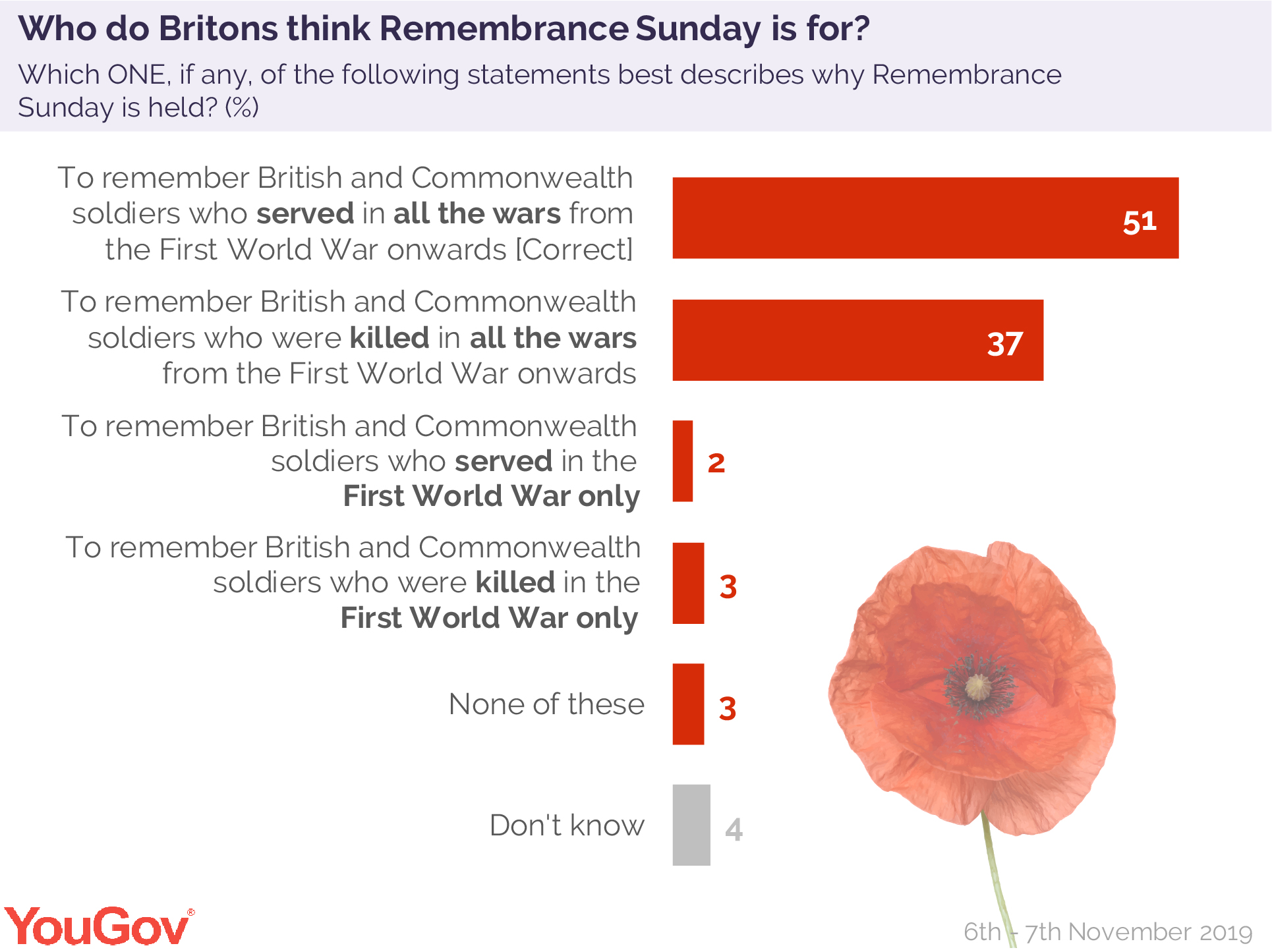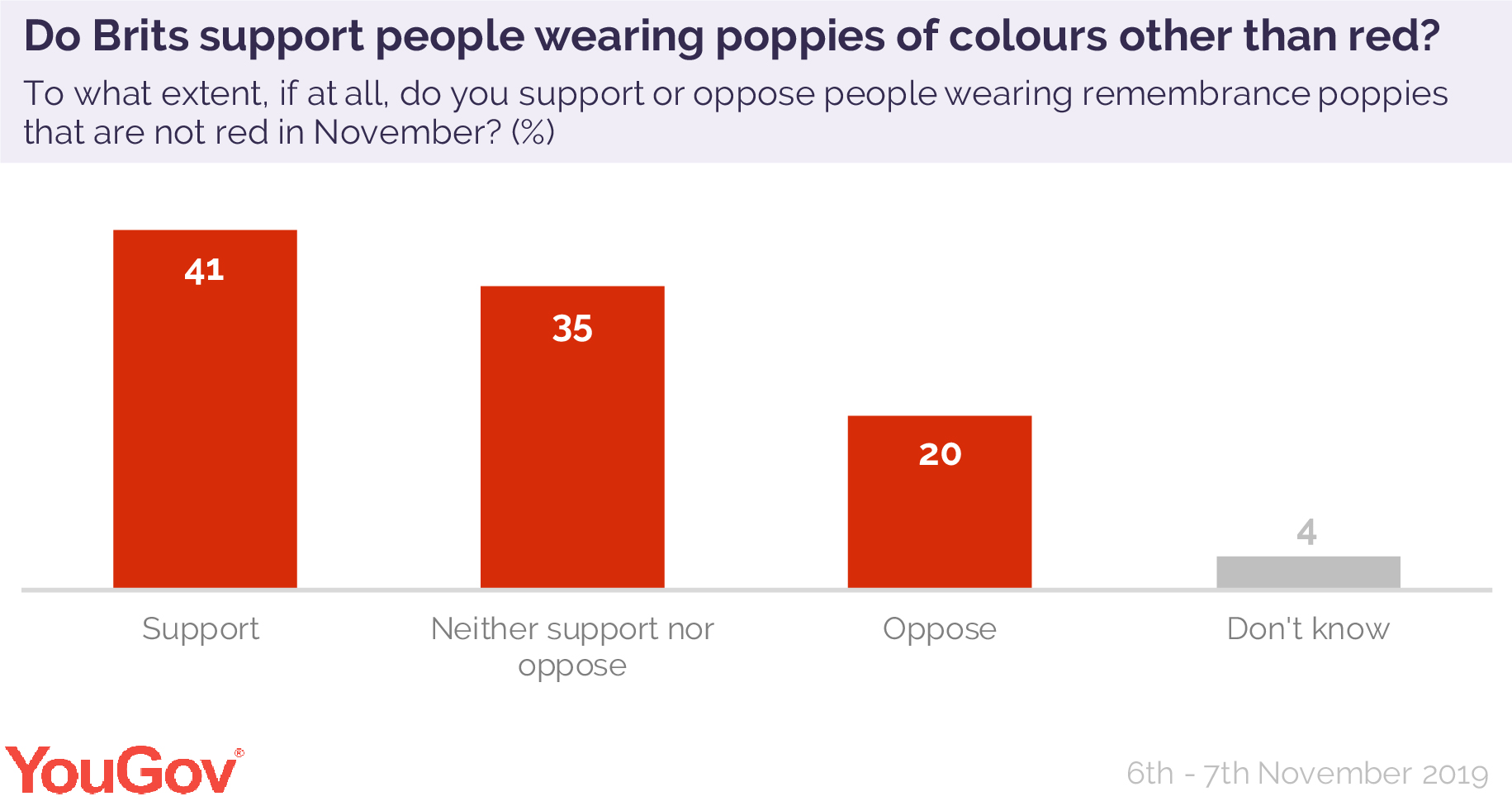Two in five think the day is only to remember soldiers who have been killed, rather than all who served
Remembrance Sunday, marked annually on the second Sunday of November, offers Britons the chance to pay homage to the sacrifice of millions of British and Commonwealth soldiers who have served in all wars since 1914. But what do Brits think the day means?
Half of Britons say that Remembrance Sunday commemorates the service of all British and Commonwealth troops, whereas a third think it is for remembering only those who perished in conflict.
In fact, the government defines the event as being in remembrance of all those who made a “contribution” in conflicts, while the British Legion talks of honouring “all who have suffered or died in war”.
Britons aged from 18 to 24 are more likely to know the correct meaning of the day (55%), than Britons aged over 55 - who split over the exact definition with 47% of the age saying they think the day is for all those who served and another 47% saying we should be remembering just those who died.
When it comes to poppies, most Brits say they have worn the traditional red poppy (85%) but support people wearing other colours. Two in five (41%) said they support people wearing other coloured poppies, with only 20% opposing.
One in twenty (6%) say they’ve worn the white poppy, which commemorates all victims of war, and represents a commitment to future peace. Another 4% say they have worn a purple poppy, which honours the many animals who have died in humanities wars.
However, one in seven Britons (14%) who have worn a poppy in the past say they won’t this year.
Image: Getty

 Click to enlarge
Click to enlarge








